 W
WEmil Abderhalden was a Swiss biochemist and physiologist. His main findings, though disputed already in the 1910s, were not finally rejected until the late 1990s. Whether his misleading findings were based on fraud or simply the result of a lack of scientific rigor remains unclear. Abderhalden's drying pistol, used in chemistry, was first described by one of his students in a textbook Abderhalden edited.
 W
WSelman Akbulut is a Turkish mathematician, specializing in research in topology, and geometry. He was a Professor at Michigan State University until February 2020.
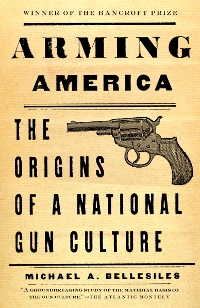 W
WArming America: The Origins of a National Gun Culture is a discredited 2000 book by historian Michael A. Bellesiles about American gun culture, an expansion of a 1996 article he published in the Journal of American History. Bellesiles, then a professor at Emory University, used fabricated research to argue that during the early period of US history, guns were uncommon during peacetime and that a culture of gun ownership did not arise until the mid-nineteenth century.
 W
WThe Bogdanov affair was an academic dispute regarding the legitimacy of a series of theoretical physics papers written by French twins Igor and Grichka Bogdanov. These papers were published in reputable scientific journals, and were alleged by their authors to culminate in a proposed theory for describing what occurred at and before the Big Bang.
 W
WSir Cyril Lodowic Burt, FBA was an English educational psychologist and geneticist who also made contributions to statistics. He is known for his studies on the heritability of IQ. Shortly after he died, his studies of inheritance of intelligence were discredited after evidence emerged indicating he had falsified research data, inventing correlations in separated twins which did not exist.
 W
WThe Columbia Unbecoming controversy was a controversy involving three professors at Columbia University in New York who some students and faculty thought were biased against Israel. At the center of the controversy was Joseph Massad, a Palestinian assistant professor who led the class Palestinian and Israeli Politics and Societies and who described Israel as a racist, settler-colonial state. For years, he was allegedly harassed by students in his class who disagreed with him. Pundits called for Columbia to fire him as they saw him unfit to teach.
 W
WDarkness in El Dorado: How Scientists and Journalists Devastated the Amazon is a polemical book written by author Patrick Tierney in 2000, in which the author accuses geneticist James Neel and anthropologist Napoleon Chagnon of conducting human research without regard for their subjects' well-being while conducting long-term ethnographic field work among the indigenous Yanomamö, in the Amazon Basin between Venezuela and Brazil. He also wrote that the researchers had exacerbated a measles epidemic among the Native Americans, and that Jacques Lizot and Kenneth Good committed acts of sexual impropriety with Yanomamö.
 W
WAlan Morton Dershowitz is an American lawyer known for his work in U.S. constitutional law and American criminal law. He taught at Harvard Law School from 1964 through 2013, where he was appointed as the Felix Frankfurter Professor of Law in 1993. Dershowitz is a regular media contributor, political commentator, and legal analyst.
 W
WDissernet is a volunteer community network working to clean Russian science of plagiarism. The core activity of the community is conducting examinations of doctoral and habilitation theses defended in Russian scientific and educational institutions since the end of the 1990s, and making the results of such examinations known to as many people as possible. The community is composed of professional scientists working in various fields of science both in Russia and abroad, and also journalists, civil activists and volunteers.
 W
WMartin Fleischmann FRS was a British chemist who worked in electrochemistry. Premature announcement of his cold fusion research with Stanley Pons, regarding excess heat in heavy water, caused a media sensation and elicited skepticism and criticism from many in the scientific community.
 W
WSaif al-Islam Muammar Gaddafi is a Libyan political figure. He is the second son of the late Libyan leader Muammar Gaddafi and his second wife Safia Farkash. He was a part of his father's inner circle, performing public relations and diplomatic roles on his behalf. He publicly turned down his father's offer of the country's second highest post and held no official government position. According to American State Department officials in Tripoli, during his father's reign, he was the second most widely recognized person in Libya, being at times the "de facto" Prime Minister, and was mentioned as a possible successor, though he rejected this. An arrest warrant was issued for him on 27 June 2011 by the International Criminal Court (ICC) for charges of crimes against humanity against the Libyan people, for killing and persecuting civilians, under Articles 7(1)(a) and 7(1)(h) of the Rome statute. He denied the charges.
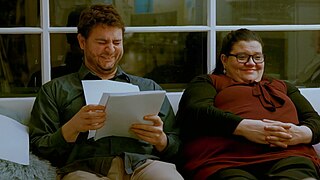 W
WThe grievance studies affair, also referred to as the "Sokal Squared" scandal, was the project of a team of three authors—Peter Boghossian, James A. Lindsay, and Helen Pluckrose—to highlight what they saw as poor scholarship and eroding criteria in several academic fields. Taking place over 2017 and 2018, their project entailed submitting bogus papers to academic journals in cultural, queer, race, gender, fat, and sexuality studies to determine if they would pass through peer review and be accepted for publication. Several of these papers were subsequently published, which the authors cited in support of their contention.
 W
WThe feminist philosophy journal Hypatia became involved in a dispute in April 2017 that led to the online shaming of one of its authors, Rebecca Tuvel, a tenure-track assistant professor of philosophy at Rhodes College in Memphis. The journal had published a peer-reviewed article by Tuvel in which she compared the situation of Caitlyn Jenner, a trans woman, to that of Rachel Dolezal, a white woman who identifies as black. When the article was criticized on social media, scholars associated with Hypatia joined in the criticism and urged the journal to retract it. The controversy exposed a rift within the journal's editorial team and more broadly within feminism and academic philosophy.
 W
WThe James Ossuary is a 1st-century limestone box that was used for containing the bones of the dead. An Aramaic inscription in the Hebrew alphabet meaning "James (Jacob), son of Joseph, brother of Jesus" is cut into one side of the box. The ossuary attracted scholarly attention due to its apparent association with the Christian holy family. However, while the ossuary itself is accepted as authentic to the time period, the inscription itself has been declared by the Israeli Antiquities Authority to be a modern forgery.
 W
WDouglas E. Lynch is an academic administrator and education entrepreneur who has made significant contributions to education innovation and also sparked controversy.
 W
WProject MKUltra is the code name given to a program of experiments on human subjects that were designed and undertaken by the U.S. Central Intelligence Agency (CIA), some of which were illegal. Experiments on humans were intended to develop procedures and identify drugs such as LSD to be used in interrogations in order to weaken the individual and force confessions through brainwashing and psychological torture. The project was organized through the Office of Scientific Intelligence of the CIA and coordinated with the United States Army Biological Warfare Laboratories. Other code names for drug-related experiments were Project Bluebird and Project Artichoke.
 W
WA paper generator is computer software that composes scholarly papers in the style of those that appear in academic journals or conference proceedings. Typically, the generator uses technical jargon from the field to compose sentences that are grammatically correct and seem erudite but are actually nonsensical. The prose is supported by tables, figures, and references that may be valid in themselves, but are randomly inserted rather than relevant.
 W
WThe Piltdown Man was a paleoanthropological fraud in which bone fragments were presented as the fossilised remains of a previously unknown early human. Although there were doubts about its authenticity virtually from the beginning, the remains were still broadly accepted for many years, and the falsity of the hoax was only definitively demonstrated in 1953. An extensive scientific review in 2016 established that amateur archaeologist Charles Dawson was responsible for the fraudulent evidence.
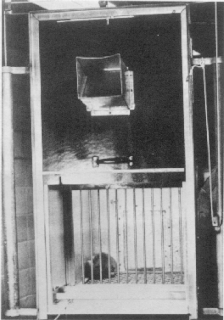 W
WThe Pit of despair was a name used by American comparative psychologist Harry Harlow for a device he designed, technically called a vertical chamber apparatus, that he used in experiments on rhesus macaque monkeys at the University of Wisconsin–Madison in the 1970s. The aim of the research was to produce an animal model of depression. Researcher Stephen Suomi described the device as "little more than a stainless-steel trough with sides that sloped to a rounded bottom": A 3⁄8 in. wire mesh floor 1 in. above the bottom of the chamber allowed waste material to drop through the drain and out of holes drilled in the stainless-steel. The chamber was equipped with a food box and a water-bottle holder, and was covered with a pyramid top [removed in the accompanying photograph], designed to discourage incarcerated subjects from hanging from the upper part of the chamber.
 W
WThe Rosenhan experiment was an experiment claimed to be conducted to determine the validity of psychiatric diagnosis. The participants feigned hallucinations to enter psychiatric hospitals but acted normally afterwards. They were diagnosed with psychiatric disorders and were given antipsychotic medication. The study was conducted by psychologist David Rosenhan, a Stanford University professor, and published by the journal Science in 1973 under the title "On Being Sane in Insane Places". It is considered by many psychologists to be an important and influential criticism of psychiatric diagnosis, and broached the topic of wrongful involuntary commitment.
 W
WEmil Rupp was a German physicist, regarded by many as a respectable and important experimentalist in the late 1920s. He was later forced to recant all five of the papers he had published in 1935, admitting that his findings and experiments had been fictions. There is evidence that most if not all of his earlier experimental results were forged as well.
 W
WThe Secret Court of 1920 was an ad hoc disciplinary tribunal of five administrators at Harvard University formed to investigate charges of homosexual activity among the student population. During two weeks in May and June 1920, "the court", headed by acting dean Chester Noyes Greenough, conducted more than 30 interviews behind closed doors and took action against eight students, a recent graduate, and an assistant professor. They were expelled or had their association with the university severed. Two of the students were later readmitted. The affair went unreported until 2002.
 W
WSamuel George Soal (1889–1975) — known as S. G. Soal — was a British mathematician and parapsychologist. He was charged with fraudulent production of data in his work in parapsychology.
 W
WSong Yoo-geun is a South Korean person who gained recognition as a child prodigy in South Korea since 2004. After graduating college in 2009, he was involved in a number of controversies during his ultimately unsuccessful doctorate program at Korean University of Science and Technology (UST), including one involving his paper in October 2015 written with his advisor, Park Seok-jae. The paper, entitled "Axisymmetric, Nonstationary Black Hole Magnetospheres: Revisited" appeared in the Astrophysical Journal (ApJ). However, the paper was soon retracted due to conerns that it plagiarized a 2002 book chapter.
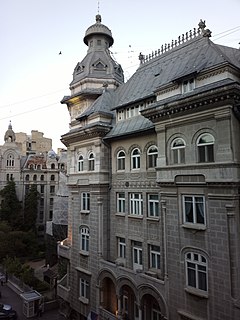 W
WThe Spiru Haret University is a private university in Bucharest, Romania, founded in 1991 by the president of Tomorrow's Romania Foundation, Aurelian Gh. Bondrea, as part of the teaching activities of this foundation. The university claims this has been done according to the model used by Harvard University. The university bears the name of a scientist and reformer of the Romanian education, Spiru Haret, who lived before World War I.
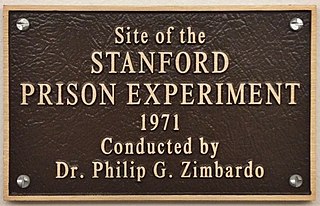 W
WThe Stanford prison experiment (SPE) was a social psychology experiment influenced by the Milgram experiment that attempted to investigate the psychological effects of perceived power, focusing on the struggle between prisoners and prison officers. It was conducted at Stanford University on the days of August 14–20, 1971, by a research group of college students led by psychology professor Philip Zimbardo. In the study, volunteers were assigned to be either "guards" or "prisoners" by the flip of a coin, in a mock prison, with Zimbardo himself serving as the superintendent. Several "prisoners" left mid-experiment, and the whole experiment was abandoned after six days. Early reports on experimental results claimed that students quickly embraced their assigned roles, with some guards enforcing authoritarian measures and ultimately subjecting some prisoners to psychological torture, while many prisoners passively accepted psychological abuse and, by the officers' requests, actively harassed other prisoners who tried to stop it. The experiment has been described in many introductory social psychology textbooks, although some have chosen to exclude it because its methodology and ethics are sometimes questioned.
 W
WAsle Sudbø is a Professor of Physics at the Norwegian University of Science and Technology (NTNU). He was a co-author of two articles in The Lancet and The New England Journal of Medicine that were since found be based on scientific fraud and subsequently retracted in 2006. The editor of The Lancet described this as the biggest scientific fraud conducted by a single researcher ever. However, his brother finally accepted all responsibilities and claimed only he was responsible for the fraud. An official inquiry into Asle Sudbø's involvement with his brother's fabrication took place. The official commission concluded that Jon Sudbø alone was responsible, and allegations against Asle Sudbø was proven to be wrong.
 W
WHugh Redwald Trevor-Roper, Baron Dacre of Glanton, was an English historian. He was Regius Professor of Modern History at the University of Oxford.
 W
WThe University of North Carolina academic-athletic scandal involved alleged fraud and academic dishonesty committed at the University of North Carolina at Chapel Hill (UNC). Following a lesser scandal that began in 2010 involving academic fraud and improper benefits with the university's football program, two hundred questionable classes offered by the university's African and Afro-American Studies department came to light. As a result, the university was placed on probation by its accrediting agency.
 W
WAndrew Jeremy Wakefield is a British former physician and academic who was struck off the medical register due to his involvement in the Lancet MMR autism fraud, a 1998 study that falsely claimed a link between the measles, mumps, and rubella (MMR) vaccine and autism. He has subsequently become known for anti-vaccination activism. Publicity around the 1998 study caused a sharp decline in vaccination uptake, leading to a number of outbreaks of measles around the world. He was a surgeon on the liver transplant programme at the Royal Free Hospital in London and became senior lecturer and honorary consultant in experimental gastroenterology at the Royal Free and University College School of Medicine. He resigned from his positions there in 2001, "by mutual agreement", then moved to the United States. In 2004, Wakefield began working at the Thoughtful House research center in Austin, Texas, serving as Executive Director there until February 2010, when he resigned in the wake of findings against him by the British General Medical Council.